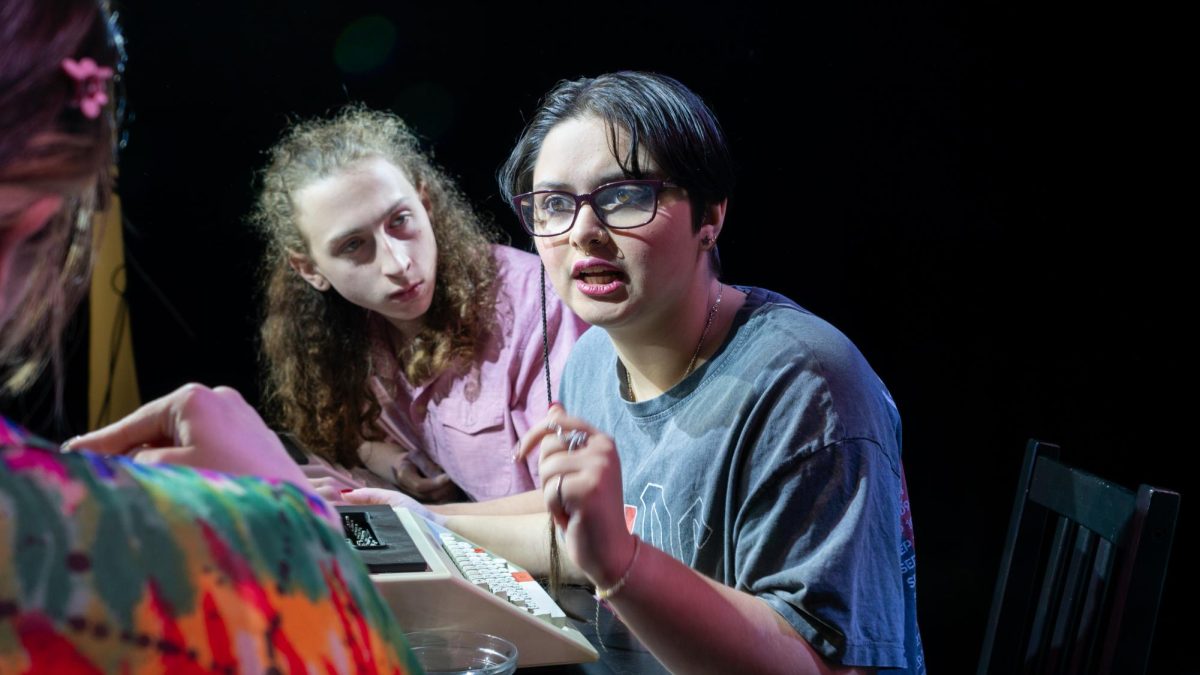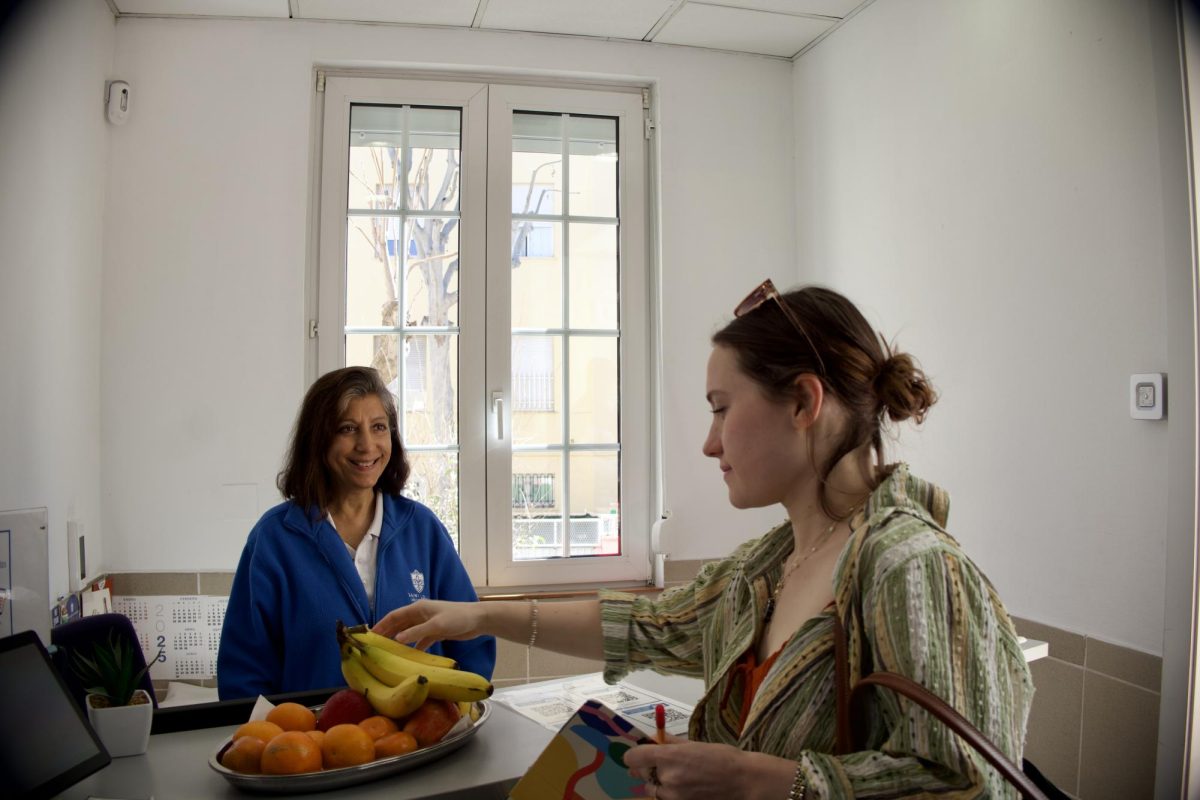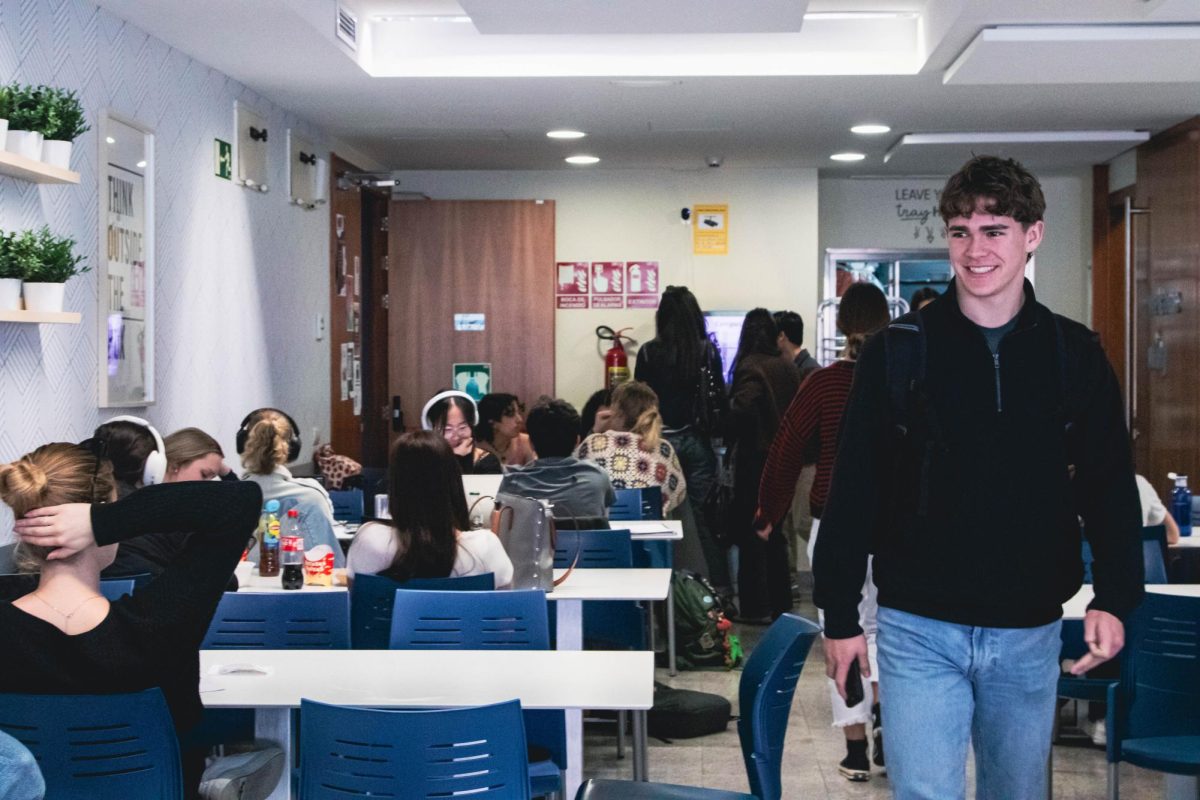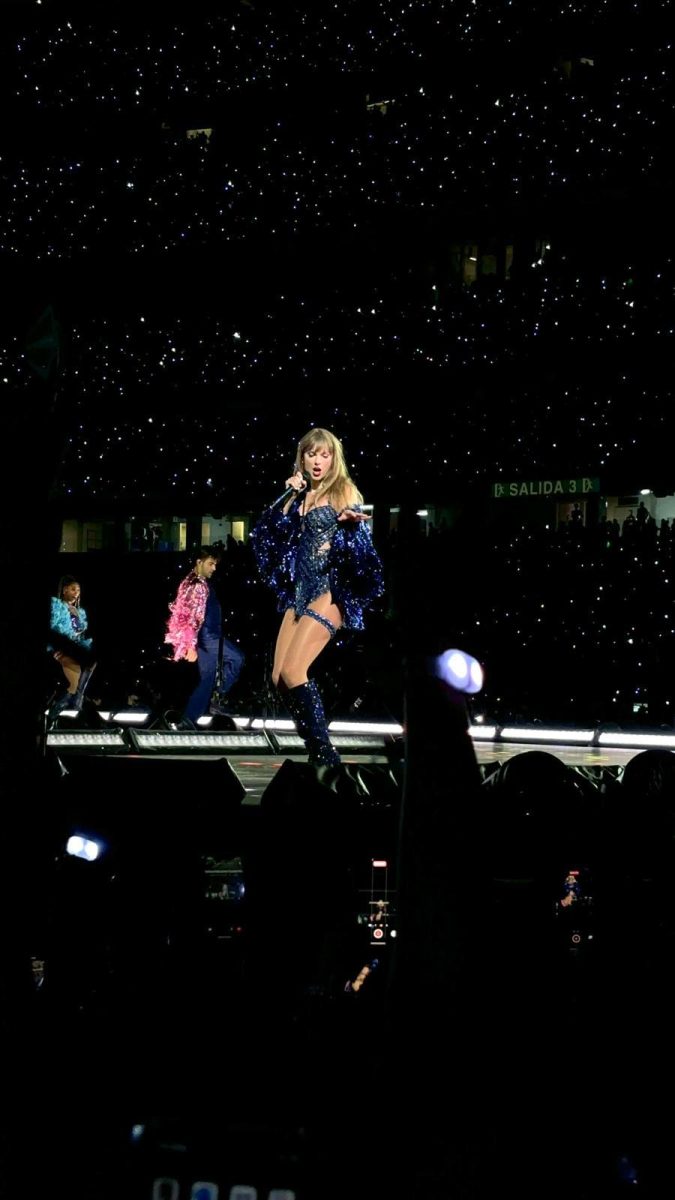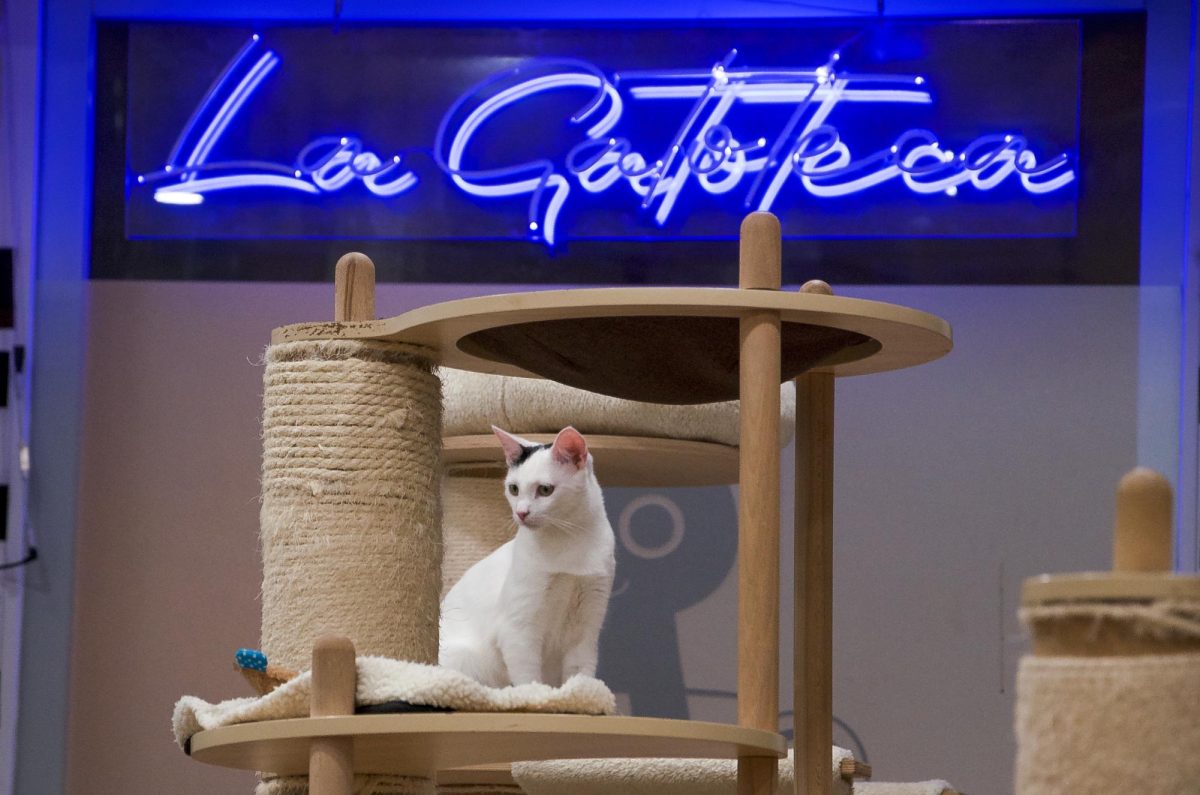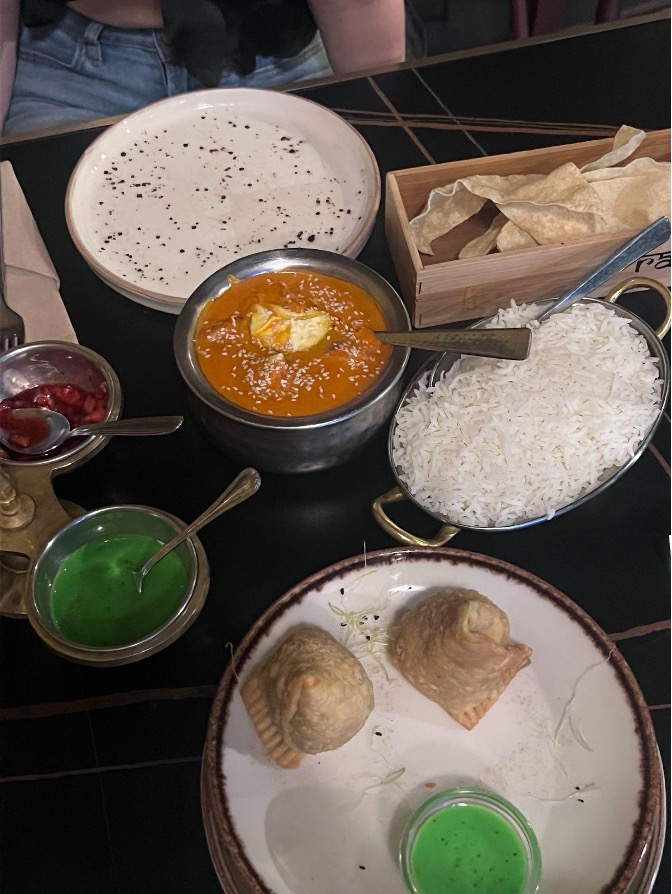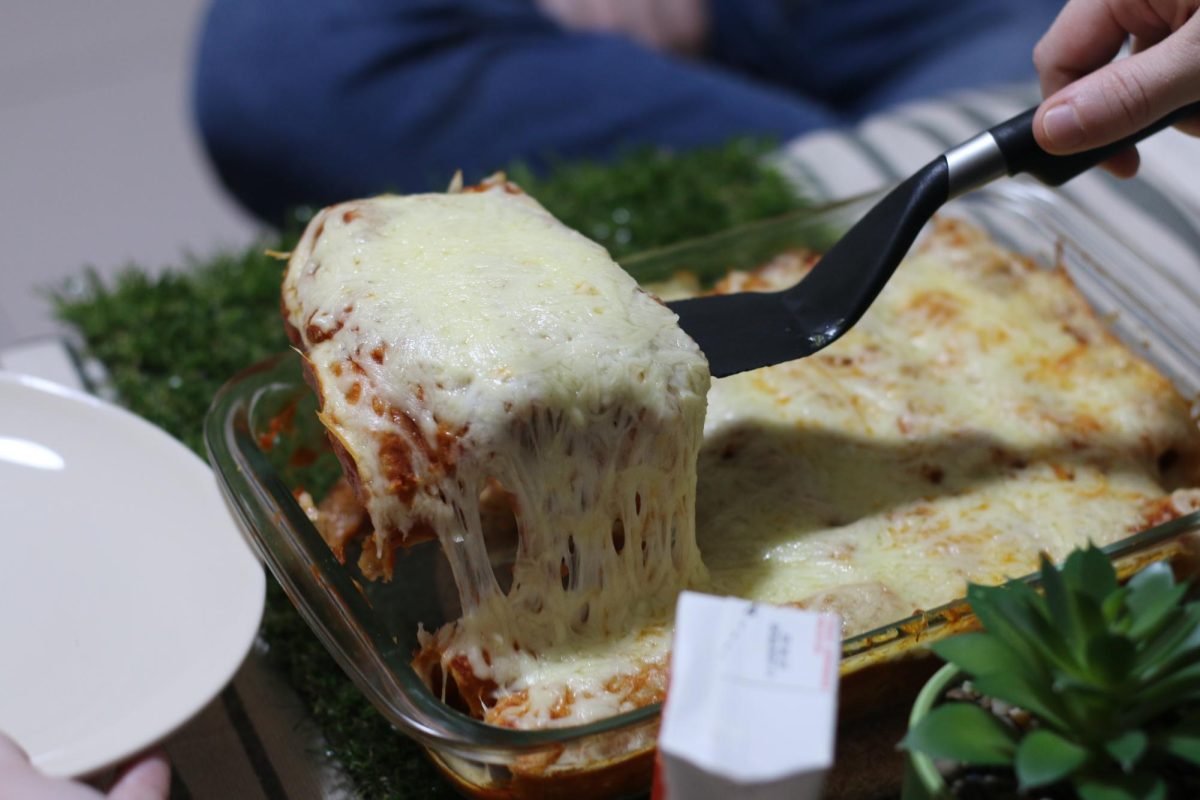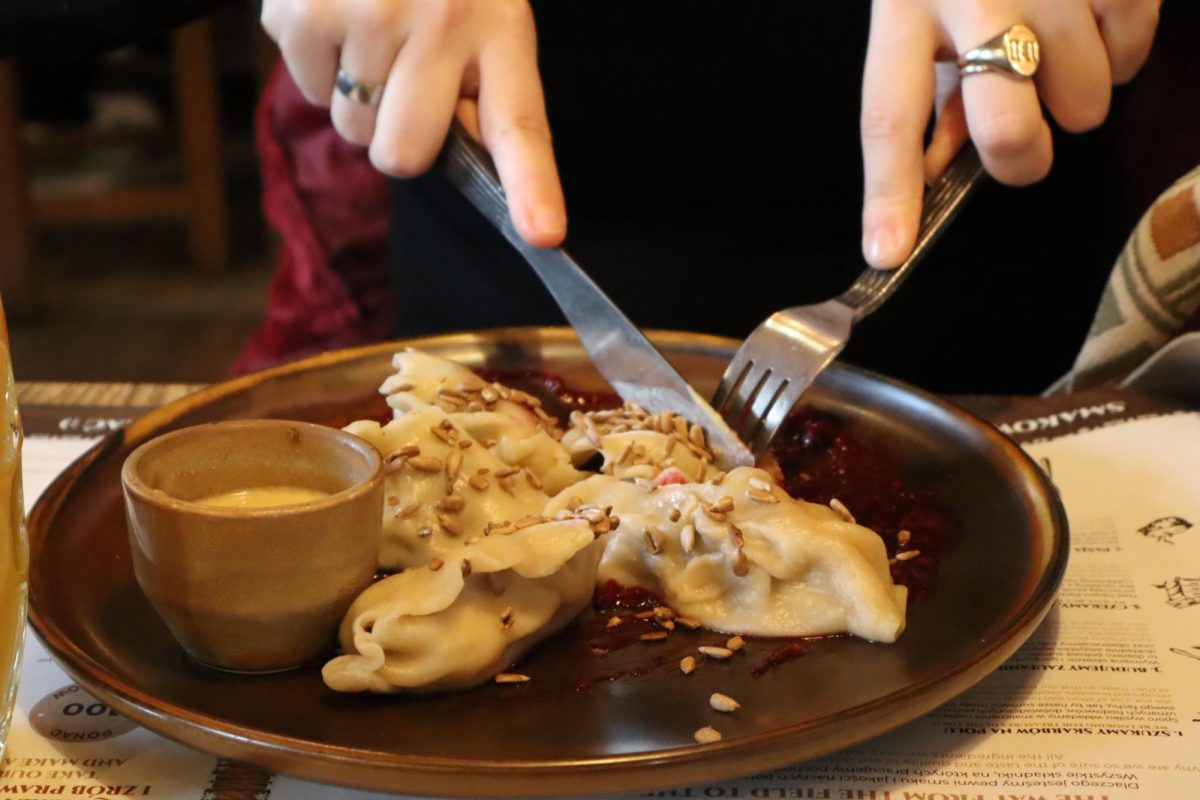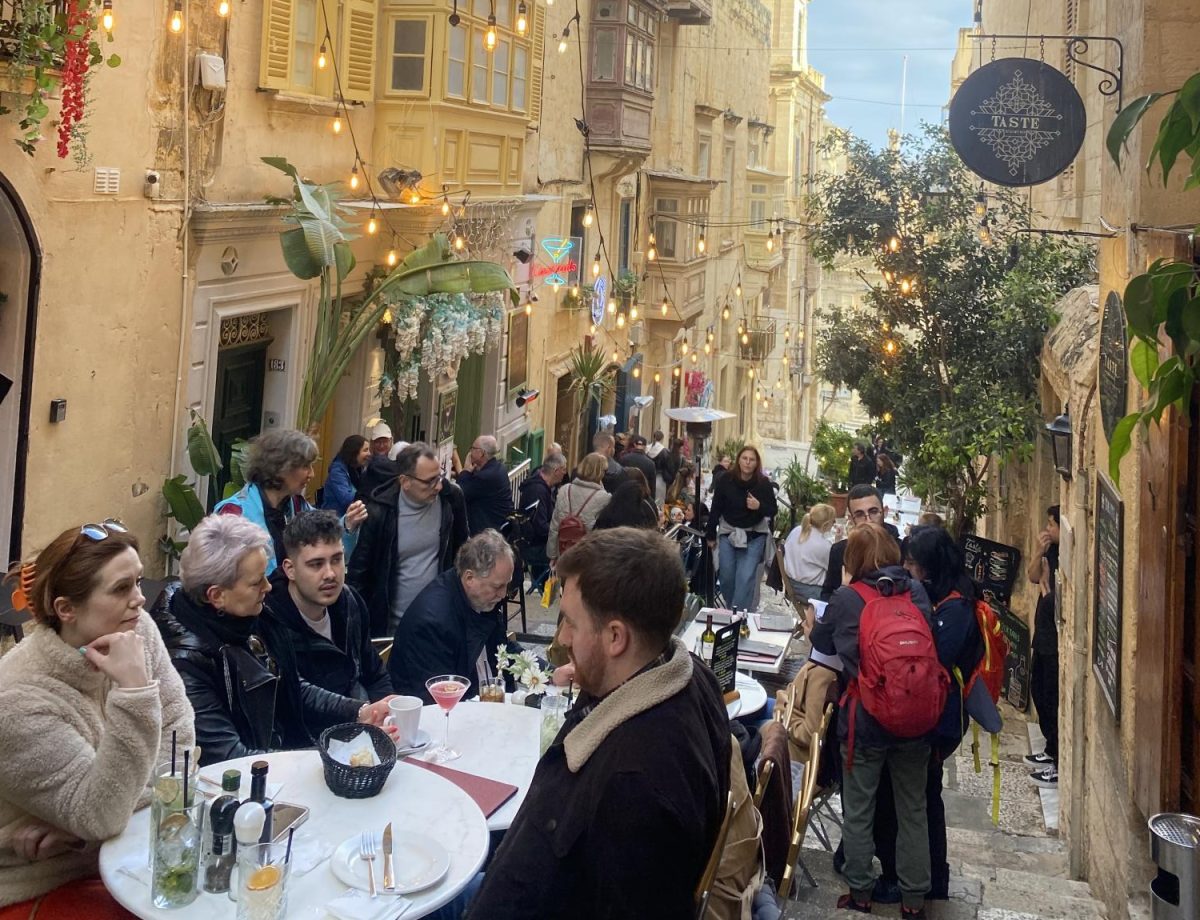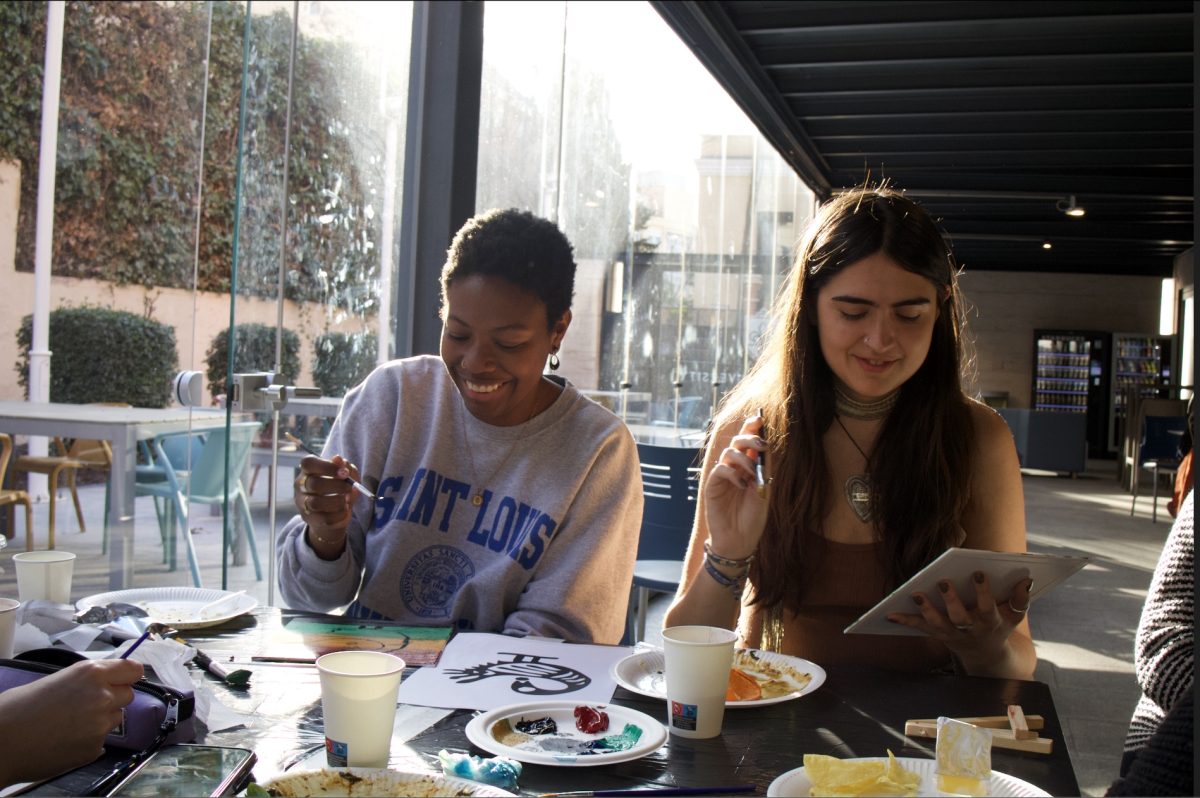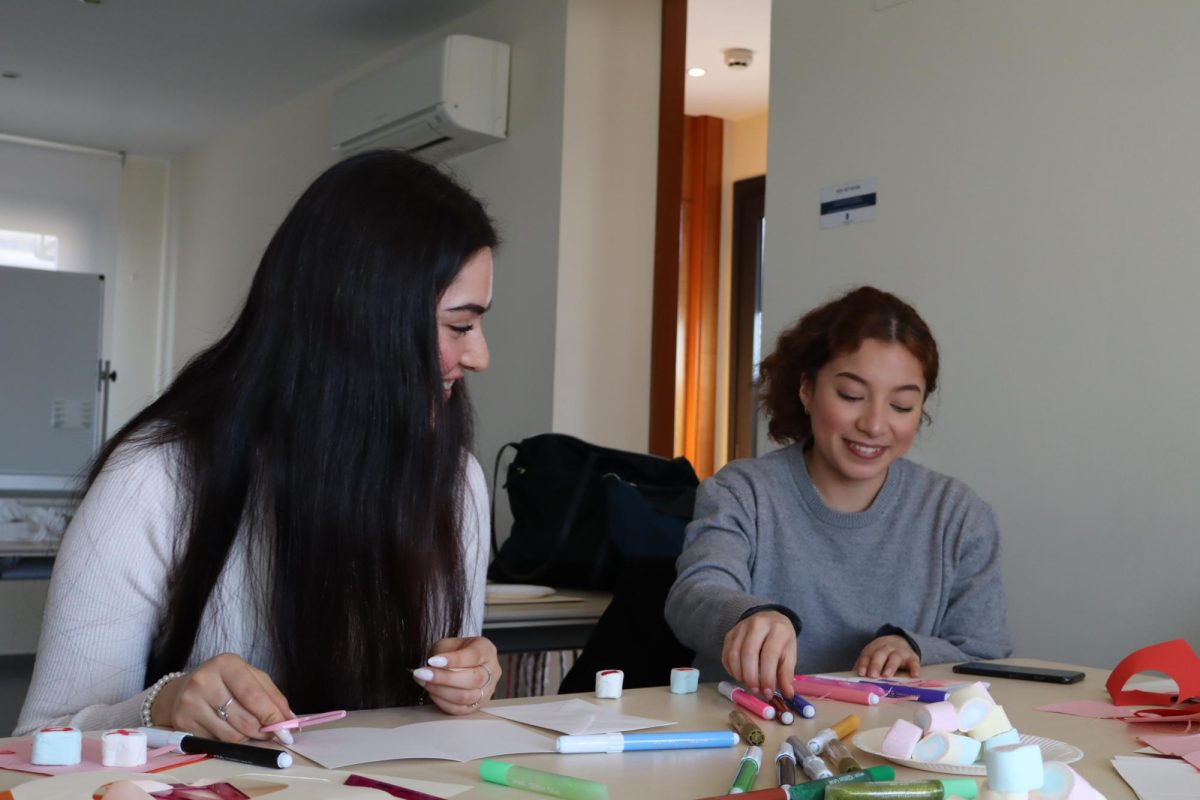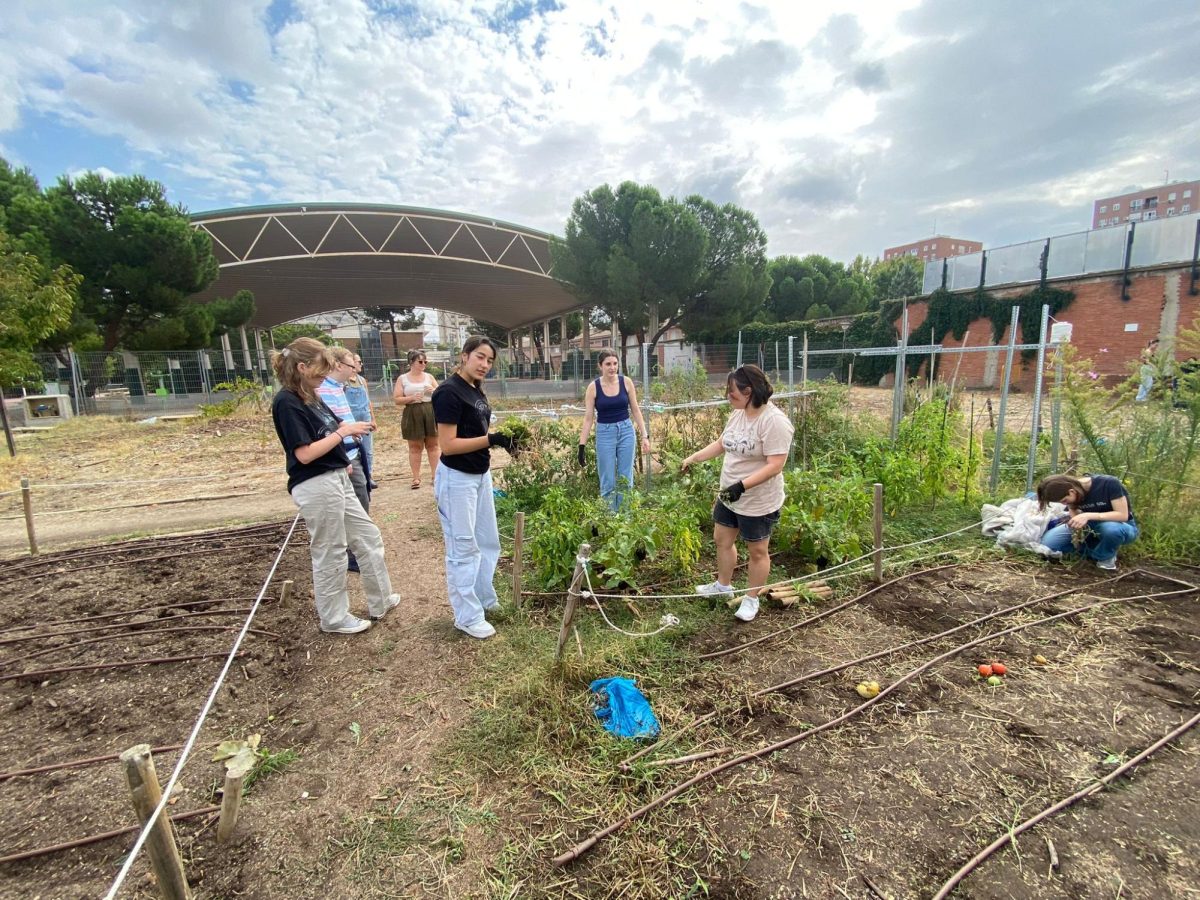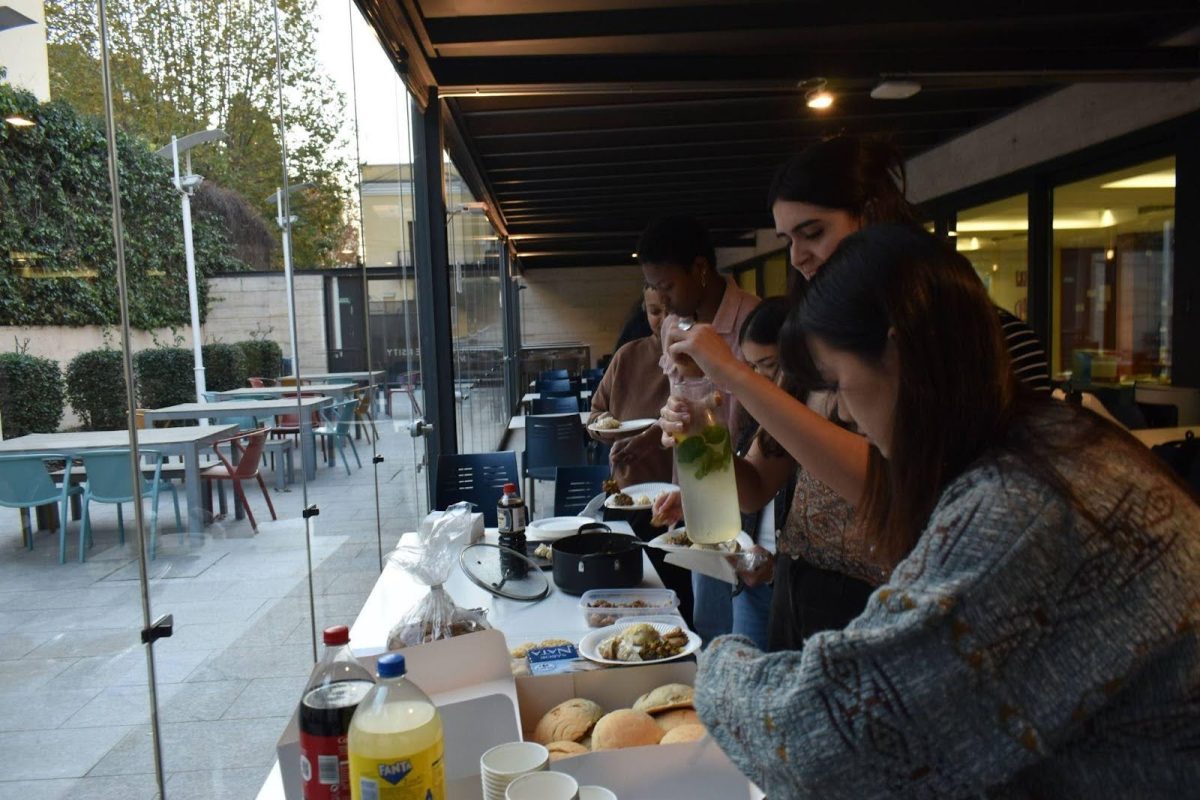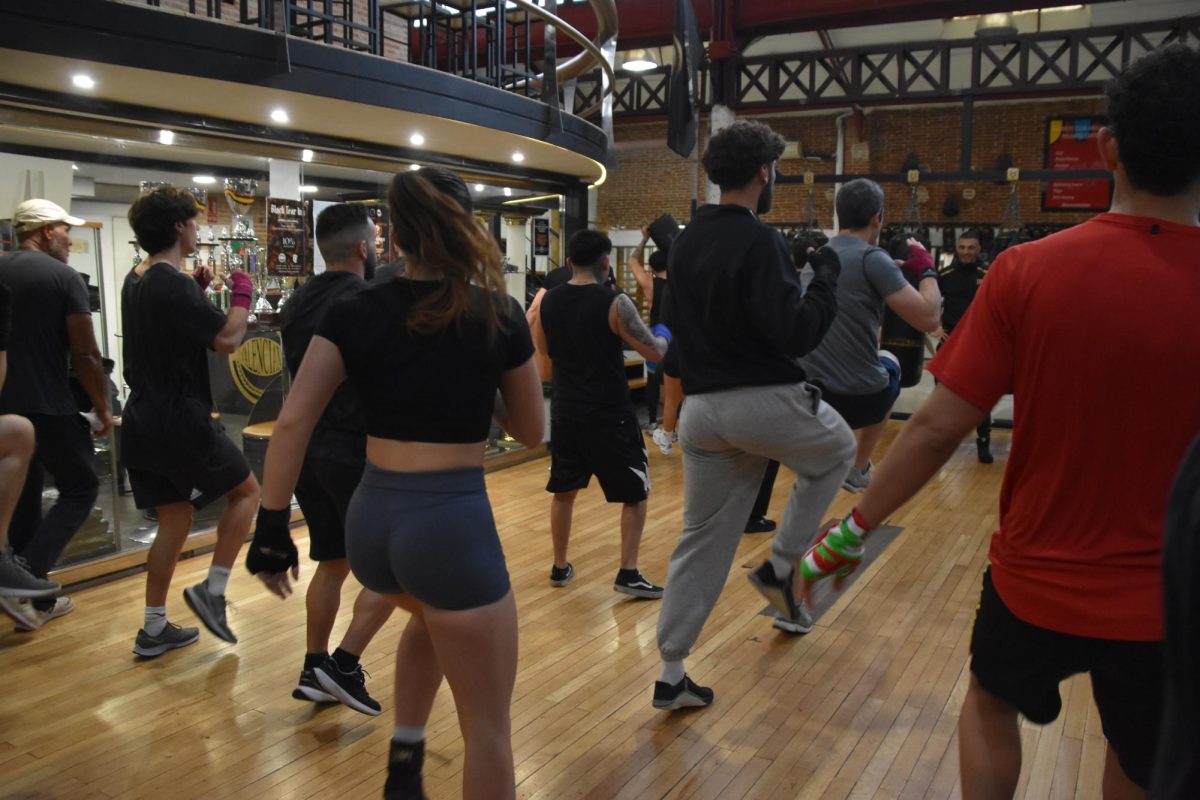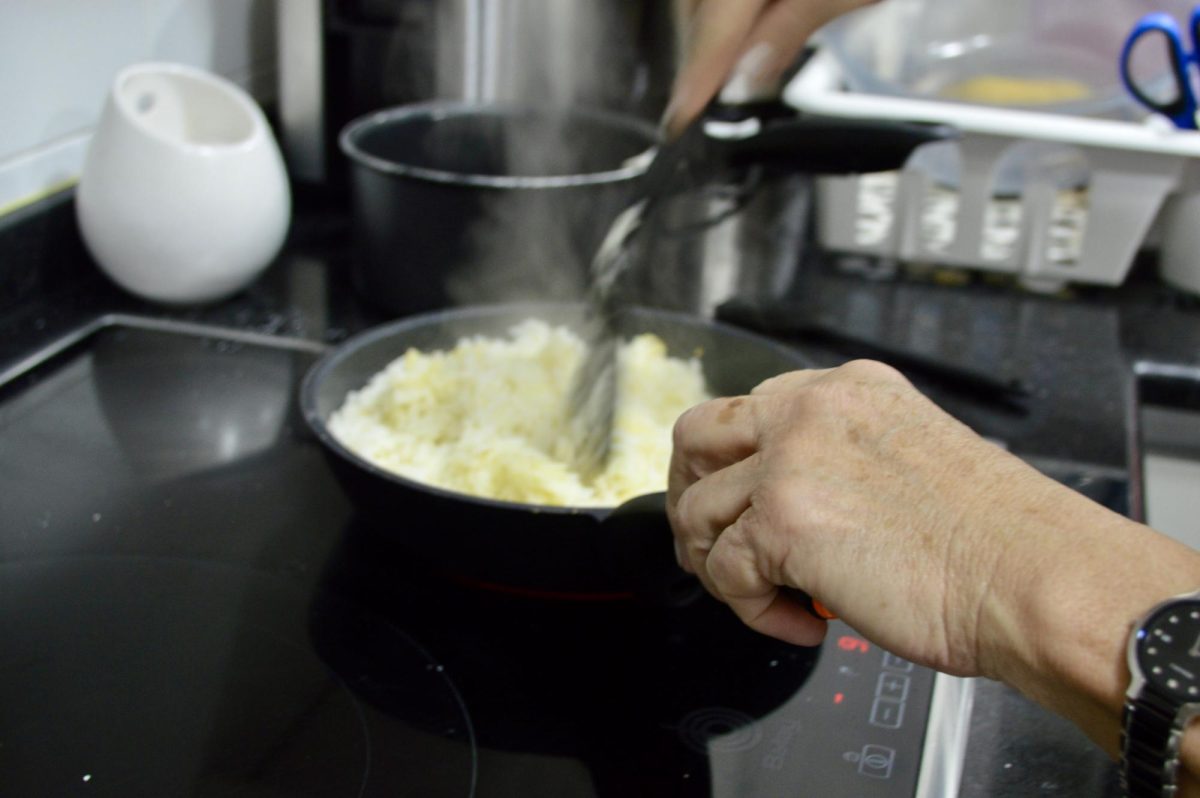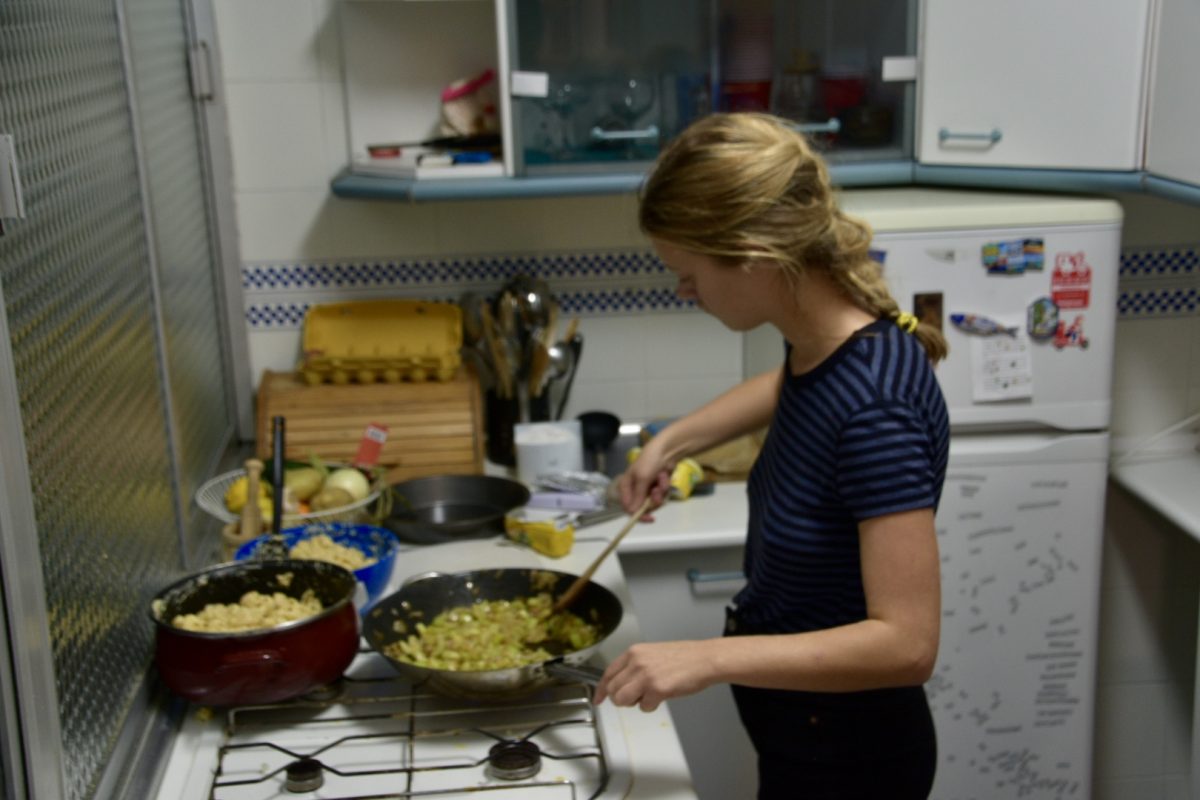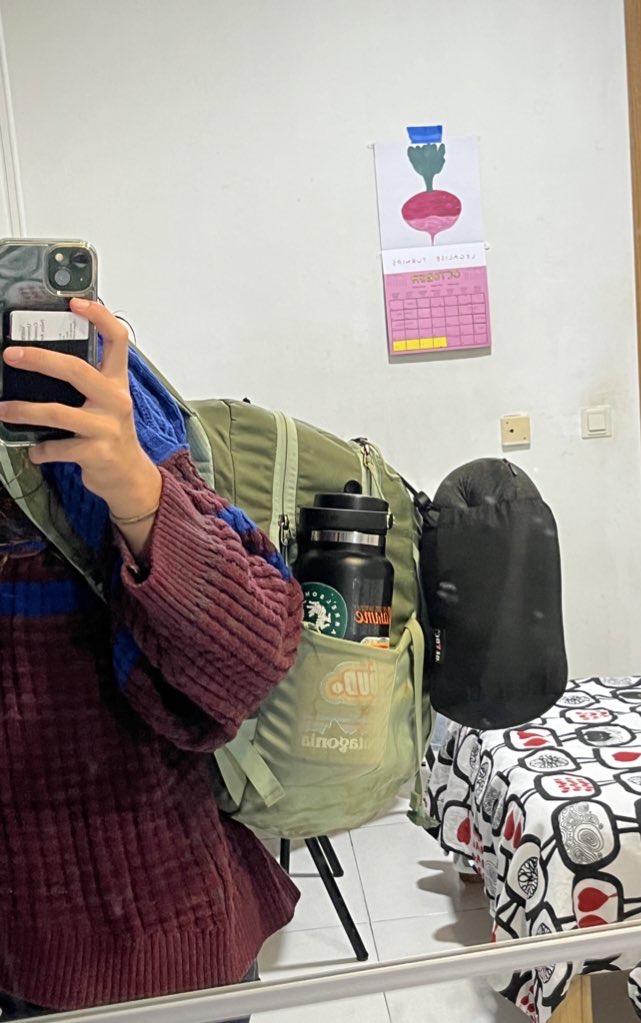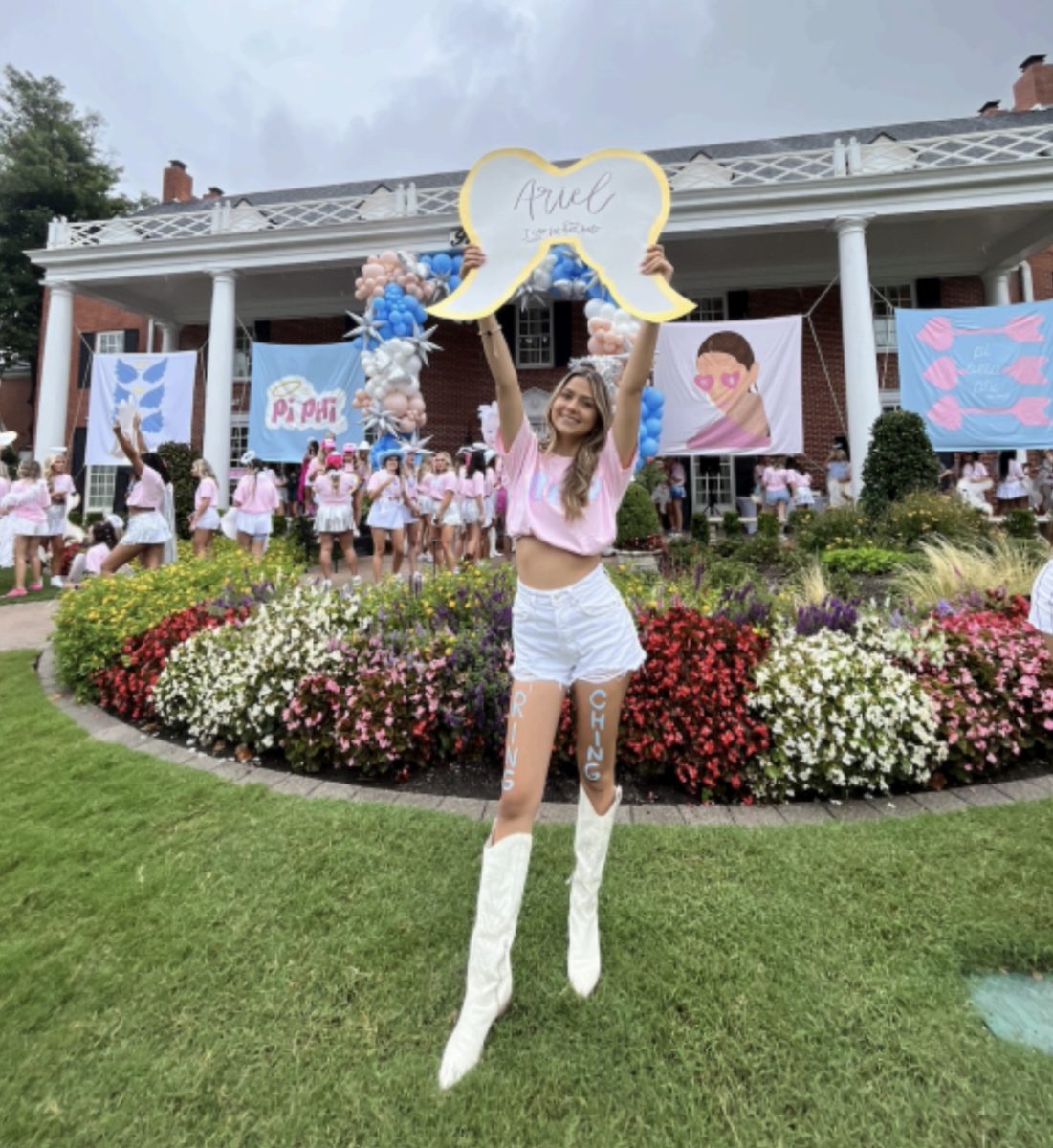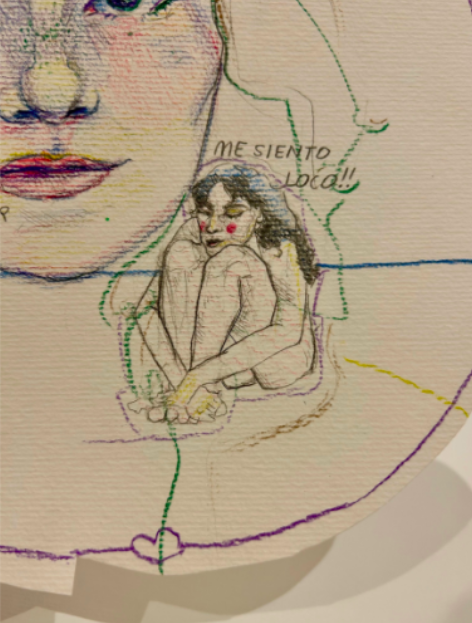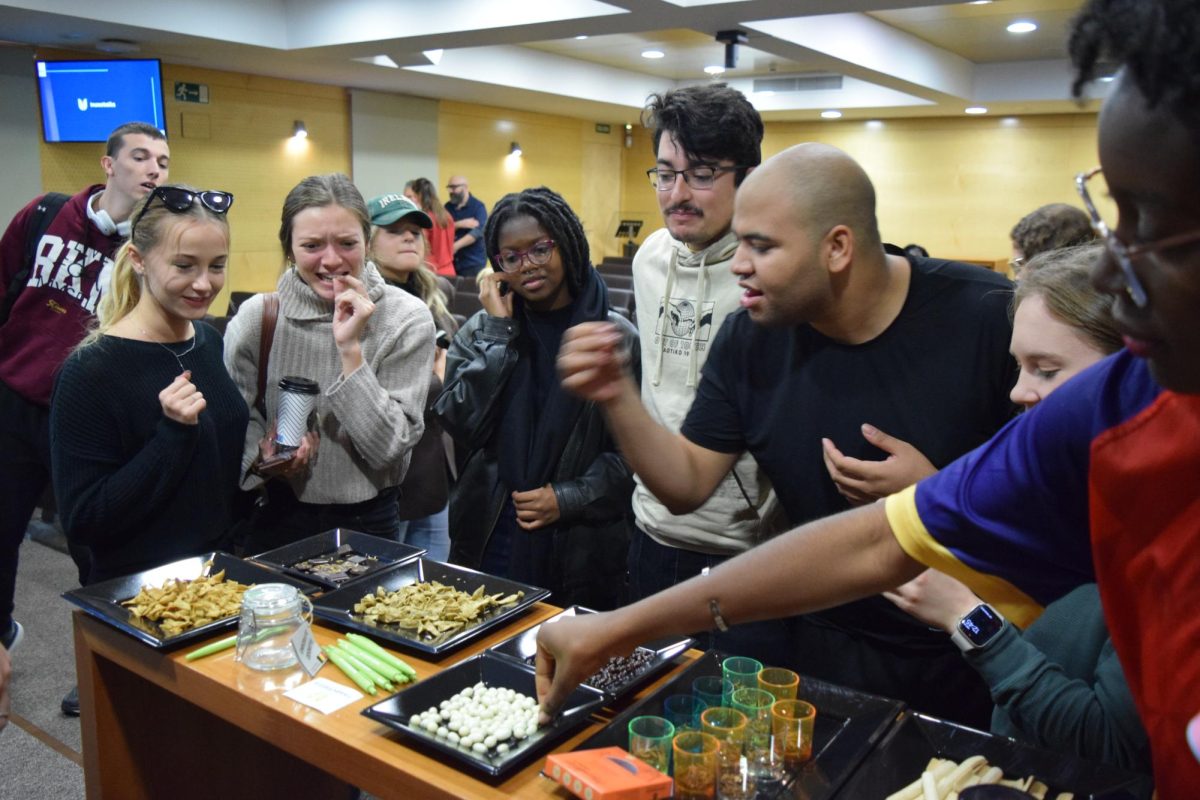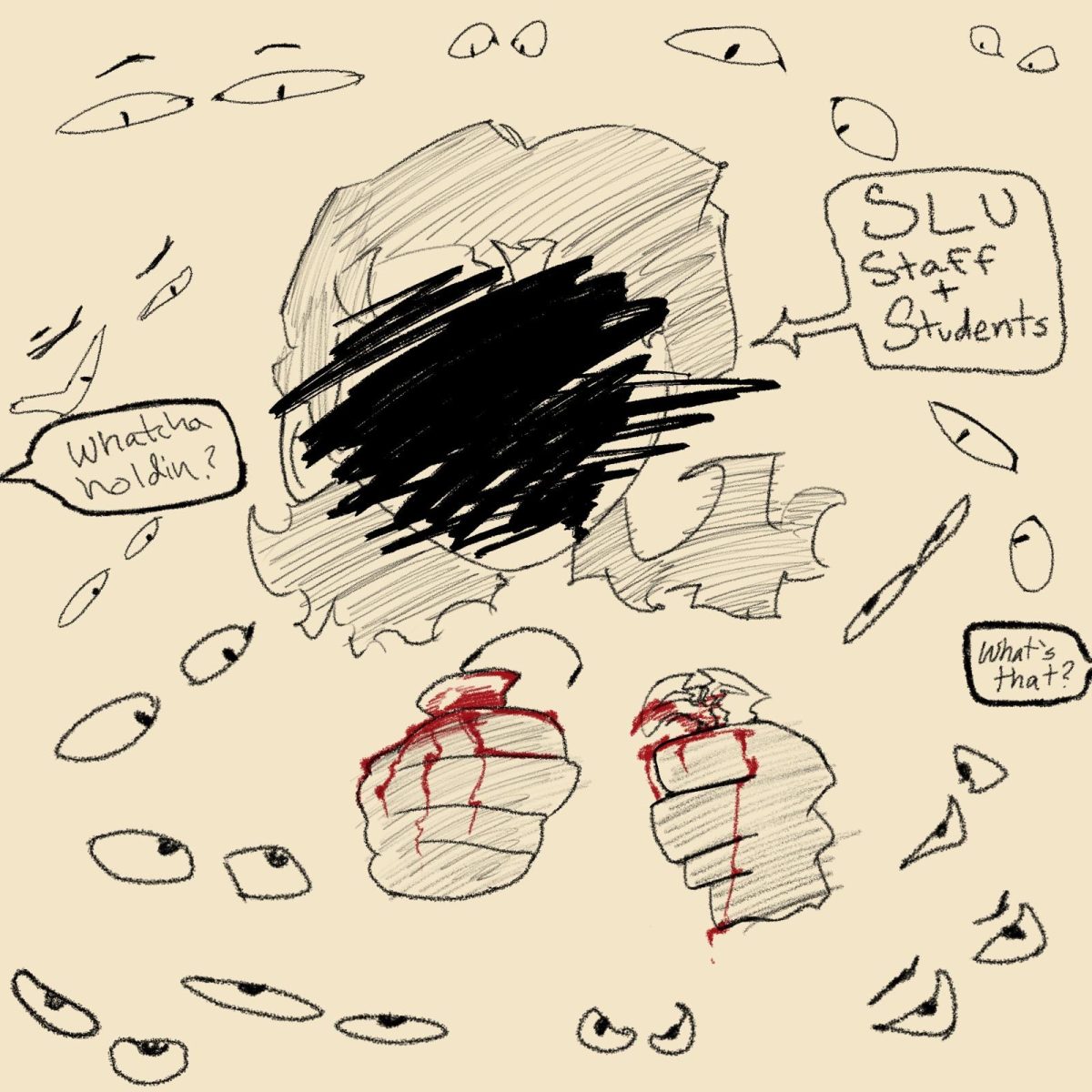Chocolate- and yogurt-covered crickets, cups of roasted mealworms and chips made from ground insects were laid out for sampling this October in the San Ignacio Hall auditorium.
These unconventional snacks were brought by a guest speaker, Francisco Hidalgo, who was invited by the Gourmet Club to speak at SLU-Madrid about his company, Insectalia, which promotes sustainable insect breeding and environmentally friendly food sources
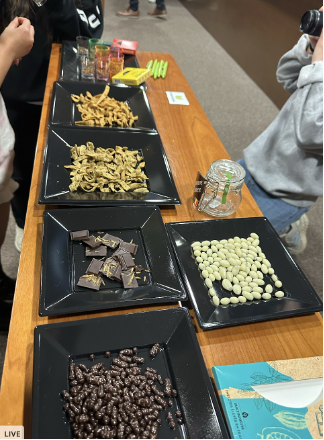
“I love the yogurt-covered cricket,” Britton Francis, a sophomore studying international relations, said with a smile. “It wasn’t at all what I was expecting, and they didn’t taste bug-like, just like regular yogurt-covered raisins. If I didn’t know they were bugs beforehand, I would have no clue.”
The bugs weren’t just a tasty treat for students. Insectalia’s presentation revealed a large number of environmental and nutritional benefits of entomophagy, the act of eating insects, which dates back to prehistoric times. According to their data, insect farming reduces food waste significantly, with 80 percent of an insect being edible, compared to only 55 percent of a chicken or 40 percent of a cow. Insects also require far less feed. Only 2 kilograms of food produces 1 kilogram of insects, compared to an 8:1 ratio for cows. This makes insects a low-impact livestock.
The insects at the tasting were chosen for their high protein, healthy fats, and low breeding costs, said Yago Burgos Díez, Insectalia’s commercial director.
“It’s crazy because everyone thinks that insect-eating is just in Indonesia or China,” Díez said. “But understanding that it’s a viable choice for food and fertilizer is really important for our future.”
This was not the first time that Insectalia has brought its crunchy critters to SLU-Madrid, and it may not be the last, depending on the turnout.
“We organized this event two years ago, and it was a big success,” said Hamish Binns, faculty advisor of the Gourmet Club.
After the presentation, students were invited to come up to the stage and try the insect snacks for themselves.
“It is very tasty,” Binns said after taking a bite. “I do eat everything and anything though,” he added with a grin.
He playfully offered cups of roasted mealworms towards wary students that waited in line, some of whom wrinkled their faces in disgust.
“I’ve tried almost all of them, and they’re all very tasty,”he said. “I’m adventurous with my food, but especially since they don’t look bug-like, it’s even better,”
While some students nervously took their first bites, others showed no fear. Caroline Fields, a permanent student majoring in political science, approached the table with confidence. This was not her first time trying insect-based snacks.
“My mom is a science teacher, so she’s made me try bugs before,” she said, laughing. “They honestly don’t have a distinct taste.”
Fields also shared her appreciation towards the sustainability aspect of entomophagy, such as their low emissions of greenhouse gases.
“I didn’t realize how many resources animals needed to be bred,” she said. “I was shocked to learn that insects are so much more sustainable.”
Hidalgo of Insectalia hopes that the event sparks students’ interest in eco-friendly dietary habits.
“We need to find sustainable ways to feed the population,” he urged.
Francis, the student who enjoyed the yogurt-covered crickets, agreed. “We’ll all be eating bugs once our world burns to ashes,” she said, shaking her head. “Might as well get used to it right now, and it’s a great alternative.”
